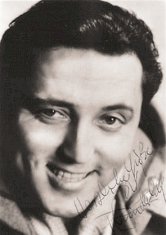 |
Happy families? Müller, Struckmann, Pieczonka in Act I
Photo (c) Ken Howard/Metropolitan Opera |
It is well-documented that I love
Fidelio. Inconsistently written and dramatically thin it may be, but it is also musically sublime, and its spare lines feel more plausible than many a fussier plot. I find its musical and dramatic structure -- moving from comedy to claustrophobia and back again -- compelling. And, not least, it can feel, psychologically, absolutely
right, despite or through its melodrama. The musical and theatrical challenges of staging it, of course, are considerable, and the Met's current run satisfies the former better than the latter. The principals offered strong and emotionally nuanced singing. The production, however, balancing uneasily between artificiality and realism, appeared to lack a strong directorial hand governing the intense, complex, and potentially ambiguous relationships among the opera's characters. Crucially, the superb Met chorus was on excellent form, and the orchestra, under Sebastian Weigle, gave full honors to the gravitas of the score without letting it become ponderous.
Having seen Jürgen Flimm's 2000 production
on DVD, I was frankly expecting to enjoy it more than I did. Some elements were both striking and effective: Rocco's tidy idyll of bourgeois domesticity existing opposite from and enabled by the cell block; the stack of prisoners' confiscated belongings consigned to the same subterranean space as Florestan. Also very poignant is the fact that when the 2nd Prisoner says "Wir sind belauscht mit Ohr und Blick!" he is referring to Fidelio's surveillance. But the crowded stage, and sometimes fussy stage business, too often works against emotional intimacy. Flimm's production seems to take the unfashionably sincere text about the power of love, etc., entirely at its word. (Parenthetically, why have I never seen an Old Hollywood production of
Fidelio, using that instantly recognizable visual vocabulary of uncynical heroism? If anyone knows of one, please let me know in the comments.) A confusing exception was that Don Pizarro is beaten to death at the conclusion, albeit just off stage. If the bullying armies have merely passed from the command of one venal leader to another, what is the point? Intellectually, I don't mind a
Fidelio production that reads against the text, and I enjoy abstract ones; but this moment of violence seemed inconsistent with the rest of the production. Moreover, I never felt that -- at least in this revival -- a stylistic balance between realism and theatricality was satisfactorily struck. Often, the characters declaim forthrightly to the audience their stifled passion, or their private fears, or their incandescent rage. In the case of Leonore especially, I felt that the ability to vent these dangerous feelings so easily, merely by facing the stage's fourth wall, rather undermined a sense of their explosive dramatic power.






